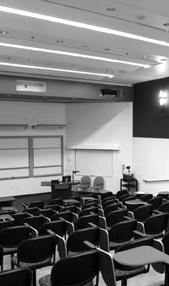Monday, October 09, 2006
God On the Quad
 This is gonna wreck Ann Coulter's day.
This is gonna wreck Ann Coulter's day. Listen to many critics of higher education, and you would think that faith had been long ago banished from the quad — or at least all those quads not at places like Notre Dame or Liberty or Yeshiva.
It turns out though, that there are plenty of believers on college faculties. Professors may be more skeptical of God and religion than Americans on average, but academic views and practices on religion are diverse, believers outnumber atheists and agnostics, and plenty of professors can be found regularly attending religious services.
Professors and Belief in God
Positions of Belief .................. % of Professors
I don’t believe in God. ................ 10.0%
I don’t know whether there is a God
and I don’t believe there is any way
to find out. ........................... 13.4%
I don’t believe in a personal God, but
I do believe in a Higher Power of some
kind. .................................. 19.6%
I find myself believing in God some
of the time, but not at others. ......... 4.4%
While I have my doubts, I feel that
I do believe in God. ................... 16.9%
I know God really exists and I have
no doubts about it. .................... 35.7%
The survey included religious institutions and, unsurprisingly, there were significant differences between those and secular schools:
Faculty members at religious colleges made up about 14 percent of the sample in the survey and they were more likely to believe in God. While 52 percent of professors in non-religiously affiliated colleges believe in God either despite doubts or without doubt, 69 percent of those at religious colleges feel that way. Professors are most likely to be atheists or agnostics at elite doctoral institutions (37 percent) and less likely to be non-believers at community colleges (15 percent).
... professors in psychology and biology are the least likely to believe in God (about 61 percent in each field are atheists or agnostics), with mechanical engineering not far behind at 50 percent. Professors most likely to say that they have no doubt that God exists are in accounting (63 percent), elementary education (57 percent), finance (49 percent), marketing (47 percent) and nursing (44 percent).
- A "surprisingly high" proportion (19 percent) of professors identify as "born-again Christian" (and they are not restricted to religious colleges -- the share at secular institutions over all is 17 percent).
- Six percent of professors view the Bible as the "word of God," 52 percent see it as "an ancient book of fables, legends, history and moral precepts," and 42 percent see it as "the inspired word of God."
The fact that a higher proportion of professors are religious than the usual story of academic secularization would have us believe suggests that we need more research on the causal impact of professors’ religious value commitments on the formation of their ideas.
Ok, you're probably being a bit tongue-in-cheek here, but I'll argue the point anyway.
The first version of the SH doesn't say anthing about engineers' tendencies at all, and the second just says engineers are more likely to be sympathetic to creationist/ID positions. So I'd say that given an engineer who is a believer, then the likelihood of being a creationist is heightened. But the proportion of engineers who are believers doesn't really have anything to do with the SH, does it?
In fact, I'm predisposed to it.
And while that does not mean that I am kidding more often than not, when the term is applied to a group, without qualification, there is at least a weak implication that a majority will be found to have the "disposition."
It is also kind of hard to imagine a mechanism that would predispose people to creationism in a group (assuming professors are a fair sample) that is half atheist/agnostic.
pandora charms outlet
supreme clothing
jordan shoes
ray ban sunglasses
pandora charms
longchamp handbags
manolo blahnik outlet
ralph lauren uk
nike factory outlet
ugg boots
michael kors outlet
michael kors handbags
jordan shoes
jimmy choo shoes
longchamp handbags
adidas ultra
vans outlet
lebron 15 shoes
coach outlet
ralph lauren polo
red bottom shoes
true religion
skechers shoes
fitflops clearance
north face
supreme clothing
yeezy boots 350
adidas yeezy
<< Home





